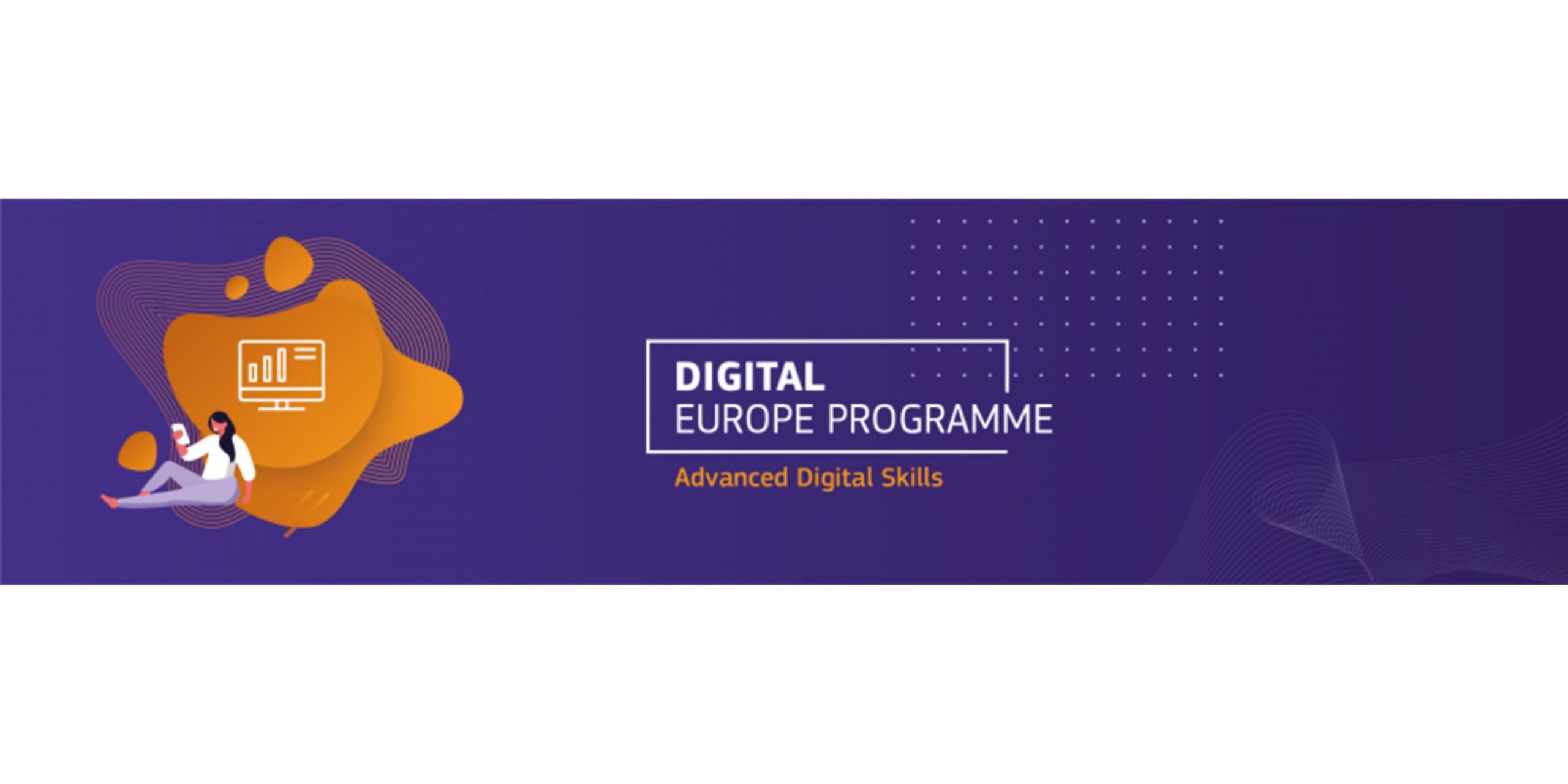On 2 May 2023 the European Commission, following the adoption of the Work Programme 2023-2024, announced the fourth set of calls for proposals under the Digital Europe Programme, among which two calls on Advanced Digital Skills. The calls will be open for applications from 11 May 2023.
These new calls will aim to tackle the shortage of sector specialists using advanced digital technologies and ICT specialists, and especially on girls and women and to reinforce the semiconductors skills. If you want to find out more about the new calls, check out the Funding and Tender Portal of the European Commission.
DIGITAL Info Day on the 4th Call for proposals
On 2 June 2023 a new Info day on the 4th Call for proposals has been organised by the Digital Skills & Jobs Platform, where the Commission presented in details the content of the call and answered live all the questions of the participants.
Have you missed the Info day? Don’t worry! The full recording of the event is now available .
If you want to find out more, check the full presentation of the Commission speakers of the event: 4th Info Day EC presentation
Are you looking for partners to build a consortium for your proposal? Don’t forget to join our Partner for DIGITAL Skills Networking Group!
Work Programmes for 2023-2024 boosting digital skills and supporting cybersecurity
On 24 March 2023 the European Commission has adopted two multiannual work programmes for the DIGITAL Programme. The programmes will receive a total of €1.284 billion in funding, out of which €553 million will be available in 2023 to support digital transformation and enhance cybersecurity.
The Main Work Programme, (DIGITAL Europe Work Programme 2023-2024), worth €909.5 million, aims to reinforce the EU’s critical digital capacities by focusing on key areas such as climate and environment protection technology, data, AI, cloud, cybersecurity, advanced digital skills, and deployment for the best use of these technologies. Also, it seeks to reinforce skills related to the semiconductor industry and to create a Cybersecurity Skills Academy for reskilling and upskilling purposes.
At this regard, the Commission has also published a specific work programme focusing on cybersecurity, with a budget of €375 million for the period of 2023-2024, to enhance the EU’s collective resilience against cyber threats.
About the DIGITAL Europe Programme
Developments in key and emerging technologies are changing the way we define digital skills and the extent to which we depend on technology. The COVID-19 pandemic further highlighted the existing shortage of digital experts in Europe.
The Digital Europe Programme provides strategic funding to answer these challenges and supports the development of a skilled talent pool of digital experts. With a total budget of €580 million for digital skills over 7 years, the Digital Europe Programme enhances cooperation between EU Member States and stakeholders in digital skills and jobs through:
- Specialised education programmes in key digital areas such as Artificial Intelligence (AI), blockchain, robotics, quantum and High Performance Computing (HPC), provided by networks of higher education institutions, research centres and businesses (€120 million contribution over the first two years of the programme).
- Short-term training courses, tailored to the needs of businesses, with an emphasis on SMEs in Europe, as well as jobseekers and citizens looking to reskill (€25 million contribution over the first two years of the programme).
These actions have 3 common goals:
- Increasing capacity and excellence of EU education and training institutions
- Encouraging cooperation between higher education, research and businesses
- Sparking interest of Europeans in digital careers and attract the best talents.
All the funded projects will be showcased on the Digital Skills and Jobs Platform.
DIGITAL Work Programme 2021-2022
On 10 November 2021 the European Commission adopted three work programmes for the Digital Europe Programme, outlining the objectives and specific topic areas that will receive a total of €1.98 billion in funding.
The document sets out the programme for part of the actions to be implemented in the first two years of the Digital Europe Programme. These actions will focus on Advanced Digital Skills, Data, AI, Cloud, Quantum Communication Infrastructure, and deployment activities for the best use of these technologies.
For more details about all the actions on Advanced Digital Skills supported by the Programme, see this presentation.
Examples of previous funding
Digital Europe Programme does not address these challenges and goals alone, but builds upon successful past EU-funded initiatives, in particular from the Connecting Europe Facility – CEF Digital. With the support of CEF funding, consortia composed of university networks, SMEs and top AI researcher centres designed four new high-quality specialised Master programmes and courses in AI. The aim of these new high-quality training programmes is to bring AI advanced digital skills closer to non-technical people and other professionals.
Find more about the new Master programmes in our dedicated page.
New opportunities and updates
We will continue to update you on the latest on the Digital Europe Programme on this page and on our Twitter and Facebook channels.
By registering to the community and joining our dedicated Partner For DIGITAL Skills Networking Group you will be able to find partners and connect with other organisations wishing to apply for the current open calls in Advanced Digital Skills.
By signing up for the Newsletter you will never miss any updates and important resources on the DIGITAL Europe Programme and other topics.
Keep an eye out on this page for more updates!
DIGITAL Europe Programme past calls and events
If you want to find out more about the calls launched in 2021 and 2022, past events and examples of previous initiatives funded through the DIGITAL Europe Programme, you will find further information on this page.
Source: European Commission I Digital Europe Programme (https://shorturl.at/swQY2)
